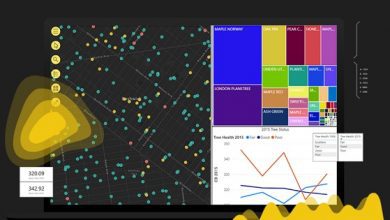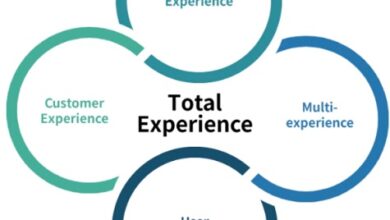Difference between soft skills and hard skills examples and importance
Soft skills and Hard skills
In this article we will provide you the information about the Difference between soft skills and hard skills their relationship and importance.
Hard skills
The hard skills , long, were the main source of analysis of a professional. It’s not hard to understand why. By nature, they are professional skills that can be measured in some way. Because of this, they are easily identifiable, whether by presenting a diploma or proficiency in a foreign language.
Hard skills, therefore, are skills that can be easily learned (and taught) through courses, training , workshops, etc. Simply put, we can conceptualize them as the technical skills of a professional. So, let’s look at some examples:
- knowledge in a foreign language;
- University graduate;
- technical courses;
- masters and doctorates;
- knowledge in the operation of machines and tools;
- computer skills.
Because they are easily recognizable, this information is often found on any candidate’s resume. Obviously, the most relevant hard skills depend on the company’s needs and the type of position to be held by the professional.
Technical skills are certainly the easiest to analyze. However, with professional development, they no longer have the same differential appeal as before. Today, soft skills receive a lot of importance in the selection process. Let’s understand them!
Soft Skills
Unlike hard skills, soft skills are more difficult to quantify and recognize. These are socio-behavioral skills, directly linked to a candidate’s mental skills and the ability to deal positively with emotional factors.
Soft skills are difficult to understand as they involve more than one course or certificate. They cover a person’s entire psychosocial experience, which also makes them more complicated skills to teach or assimilate.
Its importance in the evaluation of an employee has grown thanks to the paradigm shift that has taken place within companies in recent years. It is useless to have technically trained professionals who have difficulty dealing with pressure or collaborative work environments. Let’s check out some examples of soft skills:
- interpersonal communication;
- persuasiveness;
- proactivity;
- conflict resolution;
- ability to work under pressure;
- sense of leadership;
- analytical ability.
Importance
Although soft and hard skills are essential when filling a job position , it is important to keep in mind that they work correctly when both complement each other.
For example, a driver may be very empathetic but will not be able to drive if he does not have the knowledge and credentials to operate a vehicle. In turn, a programmer may have excellent training in his field, but if he has difficulties communicating he will not be able to transmit his knowledge to others when necessary.
That said, it is important to know that an increasing number of companies value soft and hard skills , why? Because it is considered that it is always possible to acquire technical and academic knowledge, and train to incorporate new hard skills .
But being empathetic, knowing how to resolve conflicts and having a positive attitude in the face of challenges is something that, mostly, has to do with a human quality that not everyone has and is more difficult to incorporate than a hard skill.
Examples
We already mentioned what soft and hard skills are about , let’s look at concrete examples of each one:
Hard skills
- Linguistic skills: knowledge of languages both orally and in writing.
- Mathematical thinking: related to reasoning and understanding numerical and schematic notions.
- Management of technological resources: ability to use software systems, digital and various technological tools.
- Oral expression: expository and discursive ability.
- Knowledge of specific content: from having a driving record, to knowledge of regulations in a legal matter or pedagogical training when teaching, knowledge of specific content covers everything that professional training in a certain area implies.
Soft skills
- Emotional intelligence: ability to detect your own and other people’s emotions and respond to them appropriately.
- Creativity: ability to resolve conflicts in a superior way, propose new ideas and have a different vision of aspects that may be common.
- Adaptability: this aspect is related to the ability to accept changes and adversities with a positive attitude.
- Teamwork: a well-organized team can achieve results that exceed the capacity of a single person, which is why this soft skill is one of the most required. Responsiveness, respect for others, being able to negotiate and having good communication increase productivity.
- Persuasiveness: a soft skill necessary to advance within a company, since it has to do with making others see why such an idea should be applied, persuading clients in a negotiation, and even making clear the reasons why The employee must be appreciated within the work team.
4 differences between soft and hard skills
The differences between these skills lie primarily in how they are acquired and how they are used in the workplace, each providing tools that will work in different areas.
1-Some you have, others you learn
Hard skills are acquired through education and training. On the other hand, soft skills are developed throughout life, with the experiences that one has. However, they can also be reinforced with tools provided in courses or classrooms.
2-Behavior and knowledge
Soft skills identify the behavior and personal qualities that enable you to thrive in the workplace. On the other hand, hard skills talk about the work-related knowledge and skills that a person needs to perform technical functions.
3-Those that operate on paper and those that relate to people
Hard skills help identify candidates who are good on paper, while soft skills indicate who is good in personality. For this reason, hard skills normally focus on the use of an external tool, such as a computer, a machine, among other things.
4-How to measure them
Hard skills are measurable and can even be described with numerical criteria or yes/no. Soft skills are intangible and difficult to quantify; they are described with qualitative scales.
In the labor market, hard skills can be assessed through a resume, portfolio, or specific questions in an interview. While soft skills are assessed with situational and behavioral questions, testing the skills and personality characteristics of the candidate.
Learn hard skills and develop soft skills
All companies look for prospects with the perfect combination of hard and soft skills, since they work as a complement and guarantee a person’s good performance at work.
Now that you know what hard and soft skills are, their differences and how each one works for you, it’s time for you to discover which ones are yours or which ones you can learn or develop.
Study the career of your choice and obtain the tools that Anáhuac Puebla University offers in its classrooms, leadership programs and extracurricular activities. Become a positive action leader with a combination of hard and soft skills!
Is there a relationship between these skills?
Soft and hard skills have their differences and a similarity : both can be developed.
For that, he will have to study about this skill and try to apply it in his personal and professional life . And that ‘s exactly what professionals need to start doing .
Also according to the study cited in the introduction, the fourth industrial revolution will further change the profile of the workforce .
The reason is simple: in a scenario in which machines reproduce repetitive tasks, previously performed by humans, natural abilities will be the “wild card” to hold a position in companies .
For example, a professional might have multiple certifications in the HR field , such as a recruitment and selection specialist.
However, all the time, technology launches virtual tools that quickly and efficiently meet the various demands of this area.
However, the machine will not be able to meet the need to show creativity in a given project, listen carefully to an employee, demonstrate empathy with co-workers or give feedback respecting the feelings of others.
Among the most sought after soft skills will be critical thinking, which is the ability to see a challenge from different and unusual angles.




